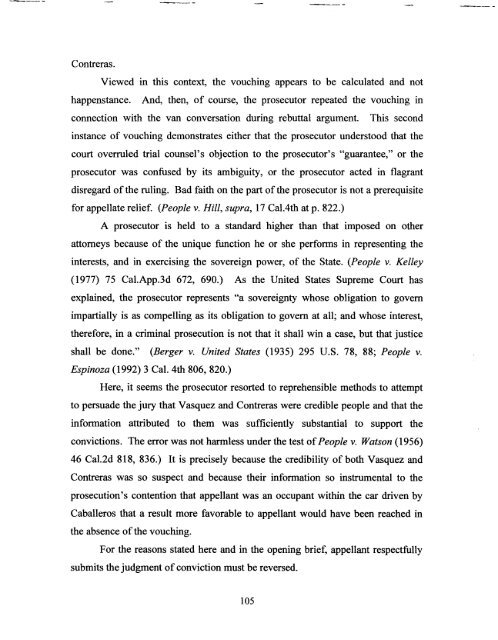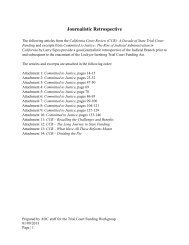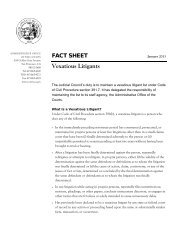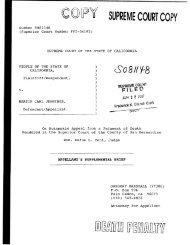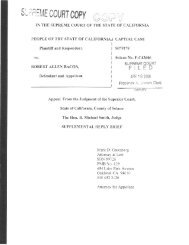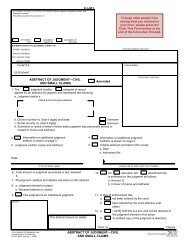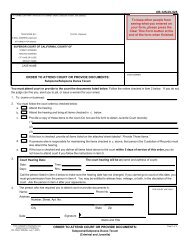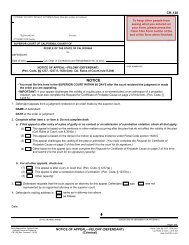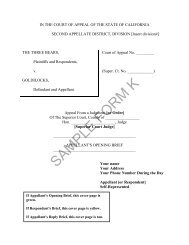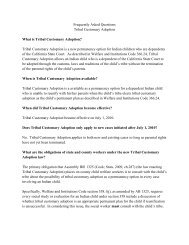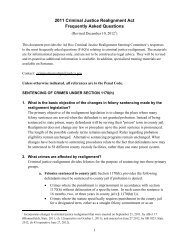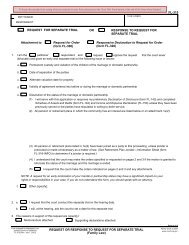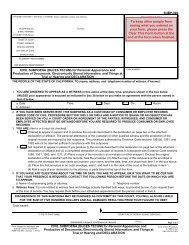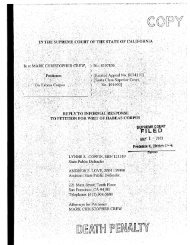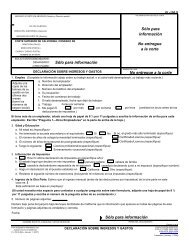Appellant, William Satele, Reply Brief - California Courts - State of ...
Appellant, William Satele, Reply Brief - California Courts - State of ...
Appellant, William Satele, Reply Brief - California Courts - State of ...
Create successful ePaper yourself
Turn your PDF publications into a flip-book with our unique Google optimized e-Paper software.
Contreras.<br />
Viewed in this context, the vouching appears to be calculated and not<br />
happenstance. And, then, <strong>of</strong> course, the prosecutor repeated the vouching in<br />
connection with the van conversation during rebuttal argument. This second<br />
instance <strong>of</strong> vouching demonstrates either that the prosecutor understood that the<br />
court overruled trial counsel's objection to the prosecutor's "guarantee," or the<br />
prosecutor was confused by its ambiguity, or the prosecutor acted in flagrant<br />
disregard <strong>of</strong>the ruling. Bad faith on the part <strong>of</strong>the prosecutor is not a prerequisite<br />
for appellate relief. (People v. Hill, supra, 17 Cal.4th at p. 822.)<br />
A prosecutor is held to a standard higher than that imposed on other<br />
attorneys because <strong>of</strong> the unique function he or she performs in representing the<br />
interests, and in exercising the sovereign power, <strong>of</strong> the <strong>State</strong>. (People v. Kelley<br />
(1977) 75 Cal.App.3d 672, 690.) As the United <strong>State</strong>s Supreme Court has<br />
explained, the prosecutor represents "a sovereignty whose obligation to govern<br />
impartially is as compelling as its obligation to govern at all; and whose interest,<br />
therefore, in a criminal prosecution is not that it shall win a case, but that justice<br />
shall be done." (Berger v. United <strong>State</strong>s (1935) 295 U.S. 78, 88; People v.<br />
Espinoza (1992) 3 Cal. 4th 806,820.)<br />
Here, it seems the prosecutor resorted to reprehensible methods to attempt<br />
to persuade the jury that Vasquez and Contreras were credible people and that the<br />
information attributed to them was sufficiently substantial to support the<br />
convictions. The error was not harmless under the test <strong>of</strong>People v. Watson (1956)<br />
46 Cal.2d 818, 836.) It is precisely because the credibility <strong>of</strong> both Vasquez and<br />
Contreras was so suspect and because their information so instrumental to the<br />
prosecution's contention that appellant was an occupant within the car driven by<br />
Caballeros that a result more favorable to appellant would have been reached in<br />
the absence <strong>of</strong>the vouching.<br />
For the reasons stated here and in the opening brief, appellant respectfully<br />
submits the judgment <strong>of</strong>conviction must be reversed.<br />
105


